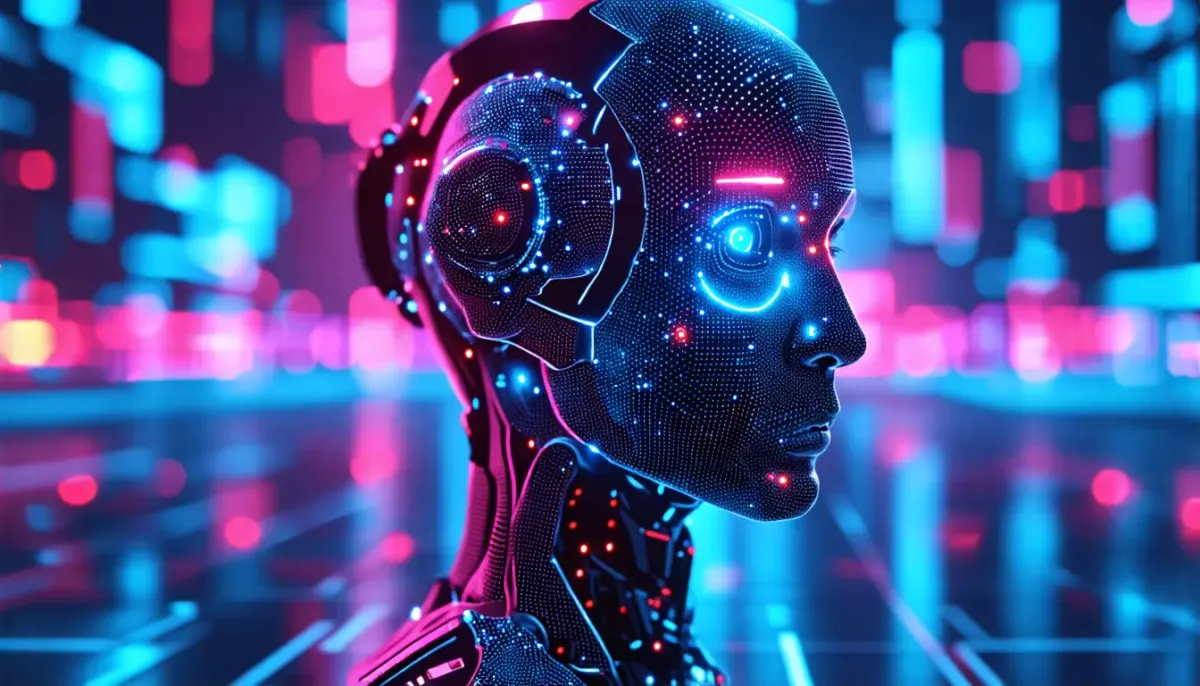Navigating the Dual Challenges of AI Innovation and Ethics

AI: At the Crossroads of Innovation and Ethical Dilemma
The rapid advancement in artificial intelligence (AI) technologies has led to significant breakthroughs across various sectors. However, it also raises concerns about the possible implications of creating systems that exceed human intelligence. Among those issuing warnings is Geoffrey Hinton, a Nobel laureate and a prominent figure in AI development. His apprehensions reflect broader discussions within the tech community about the balance between harnessing AI’s potential and safeguarding against its risks.

Advancements and Industry Integration
AI integration continues to expand across multiple industries, driving innovation and efficiency improvements. In healthcare, companies like Suki are developing AI-powered voice assistants that promise to transform clinical workflows and enhance patient care. Meanwhile, the tech giant Advanced Micro Devices (AMD) has unveiled its next generation of AI chips. These advancements underscore a burgeoning demand for AI computing power, underscoring the need for robust AI infrastructure.
Similarly, AI’s role in social and environmental initiatives is growing. Companies such as Dell and IBM are deploying AI tools in building climate-forecasting models and improving emergency response systems. These applications not only showcase AI's capabilities but also highlight the necessity of ethical and responsible use of technology. Ensuring these systems are equitable and beneficial for all is paramount.
Regulatory and Ethical Concerns
As AI becomes increasingly embedded in society, regulatory frameworks are struggling to keep pace. Challenges such as licensing deals in news media and equitable revenue-sharing agreements reveal the complexities regulators face. There are ongoing discussions about how to ensure the media industry adapts to AI without undermining local journalism efforts.
Moreover, the ethical landscape of AI use is contentious. Limiting public access to AI’s inner workings may disrupt innovation, concentrating power within a small group of companies. This could inadvertently inhibit public accountability and transparency, raising questions about how to foster an ecosystem where ethical standards and competitive egalitarianism coexist.
Investment, Skills, and Workforce Dynamics
The financial landscape for AI startups is visibly dynamic, with considerable investments fueling rapid growth. Companies like Infactory and Suki are receiving substantial funding to refine AI applications like hallucination prevention in AI models and healthcare innovations, respectively. These developments suggest a competitive market that is both vibrant and speculative. However, this growth also brings legal scrutiny, as seen in lawsuits faced by entities such as OpenAI and Anthropic, which exemplify the legal challenges that accompany technological advancements.
In workforce terms, the necessity for skills adaptation is clear. Generative AI skills, once niche, are now increasingly becoming commonplace across various professions. Companies are strategizing how to reskill their workforce to match this evolution, highlighting the dire need for educational and training initiatives. This shift will be crucial in bridging existing skill gaps and ensuring equitable access to AI resources, particularly for marginalized groups who risk being sidelined.
In conclusion, while AI continues to push boundaries and redefine capabilities across sectors, the cautionary voices advocating for ethical usage and thoughtful regulation are crucial. Balancing innovation with accountability will determine how successfully AI can serve humanity’s broader interests both equitably and sustainably.

